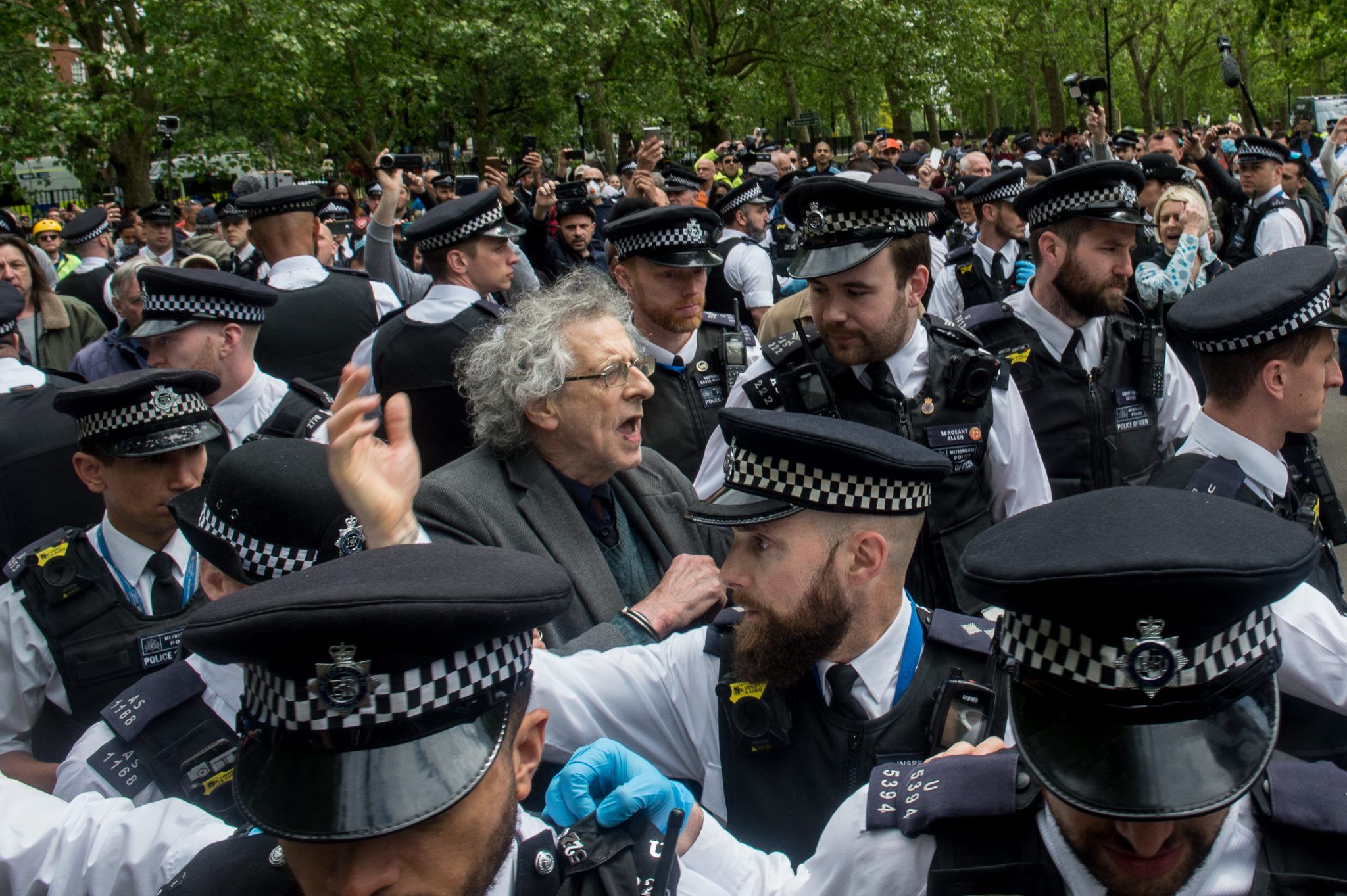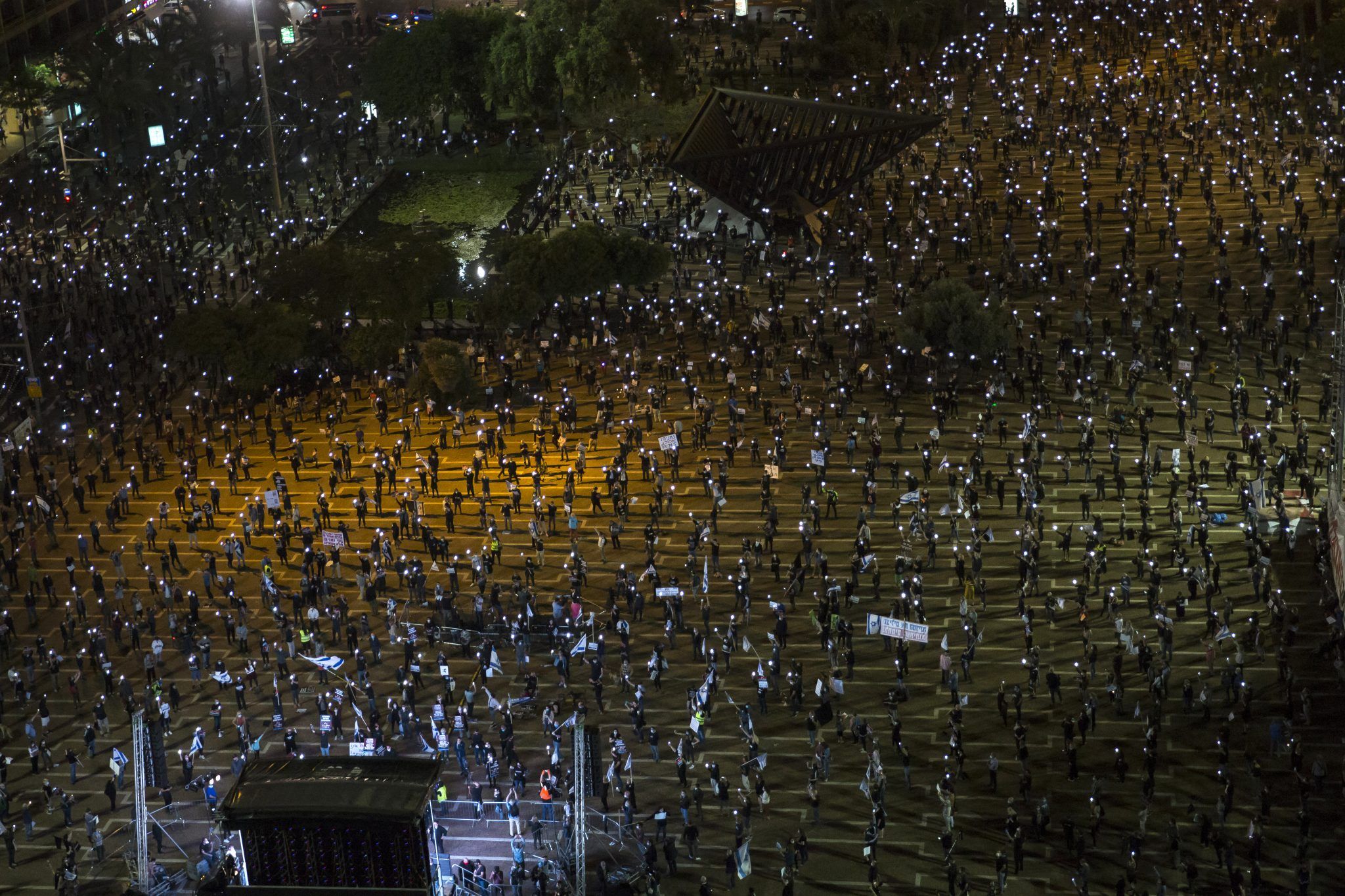

Share
17th March 2021
06:20pm GMT

It’s been a year since the government gave itself extra powers under the Coronavirus Act, and Saturday's events at the vigil for Sarah Everard have thrown how stark those powers were into the public eye.
Human rights groups, such as Liberty, have been expressing concerns about this from its inception - describing the act as one which “strips away our civil liberties".
The government initially tried to introduce the legislation, without regular review, for two years - it was only after Conservative backbenchers rebelled that the government agreed to a regular, six-month review period.
Until now, it had mostly been anti-vaxx and 5G conspiracy theorists that had most publicly and dramatically cried foul at the draconian restrictions on the right to protest.
Few felt that strongly when they saw people like Piers Corbyn being bundled off and slapped with a £10,000 unappealable fine for organising a protest - in fact, many celebrated it.
While there were those with legitimate concerns about state overreach, all too often they were either drowned out by the empty vessel conspiracy theorists, or too concerned about being cast amongst them.
[caption id="attachment_267018" align="alignnone" width="2048"] Piers Corbyn with police[/caption]
Piers Corbyn with police[/caption]
But then the vigil for Sarah Everard happened, and the reality of the powers the police have been given were laid bare.
Under the European Convention on Human Rights (ECHR), which the government is duty bound to uphold, the government can put restrictions on others to protect the right to life.
It is under this rule that the government have justified closing schools and overriding our right to education, for example - as well as curtailing our rights to protest.
However, concerns are now growing that the legislation is starting to overstep its mark.
And much of the coronavirus legislation has been rushed through parliament so quickly that MPs have not even had proper time to scrutinise it.
Threats of £10,000 unappealable fines have led to people like trans rights activist Thaniel Dorian cancelling demonstrations.
But it’s not just restrictions on protest that have been legislated for.
Under the Coronavirus Act, the government have also extended their surveillance powers - leading to Big Brother Watch warning that the legislation is weakening “safeguards on mass surveillance powers".
Last year, some MPs - such as Labour's Harriet Harman - pushed for amendments to the Coronavirus Act, such as a “proportionality assessment” and only introducing fines that can be appealed.
The House of Lords have also expressed concern that the government had been ignoring their concerns for the best part of a year.
JOE spoke to Ben Reiff, a British journalist who covered protests against Israeli prime minister Benjamin Netanyahu in 2020. There have been protests in the country every Saturday night for almost a year. [caption id="attachment_267020" align="alignnone" width="2048"] Socially distanced anti-corruption protest in Tel Aviv, Israel[/caption]
During lockdown, the Israeli government placed restrictions on protestors - limiting them to a one kilometre radius.
"Everyone started protesting on their street corners, and had mini protests all around the country within their one kilometre," Reiff says.
"Then the one kilometre rule stopped when lockdown ended."
However, he said some of the scenes reminded him of those in Israel.
"Some of the police in Jerusalem were quite aggressive," he said.
"Young people were quite radicalised by seeing the police response to that - and I think there are parallels there with what happened at the vigil for Sarah Everard."
He said the backlash received by police in Jerusalem made them step back a bit when it came to the policing of the protests.
He described the British government's latest policing bill as "pretty terrifying", and said restrictions like that don't exist in the same way in Israel.
However, he highlighted that these rights to protest are crushed if you are a Palestinian living in the Occupied territories - and it's harder to protest if you are not a white Jew.
Socially distanced anti-corruption protest in Tel Aviv, Israel[/caption]
During lockdown, the Israeli government placed restrictions on protestors - limiting them to a one kilometre radius.
"Everyone started protesting on their street corners, and had mini protests all around the country within their one kilometre," Reiff says.
"Then the one kilometre rule stopped when lockdown ended."
However, he said some of the scenes reminded him of those in Israel.
"Some of the police in Jerusalem were quite aggressive," he said.
"Young people were quite radicalised by seeing the police response to that - and I think there are parallels there with what happened at the vigil for Sarah Everard."
He said the backlash received by police in Jerusalem made them step back a bit when it came to the policing of the protests.
He described the British government's latest policing bill as "pretty terrifying", and said restrictions like that don't exist in the same way in Israel.
However, he highlighted that these rights to protest are crushed if you are a Palestinian living in the Occupied territories - and it's harder to protest if you are not a white Jew.
The Police, Crime, Sentencing and Courts bill in the UK passed its second reading in the House of Commons yesterday.
Unlike the Coronavirus Act - which the police used to crush the vigil for Sarah Everard - the bill is a permanent, rather than a temporary, piece of legislation.
While it's too late for us to stop the bill now, the entire affair should serve as a cautionary tale on what happens when we allow governments to play fast and loose with our civil liberties. Such civil liberties are hard fought, but easily lost.Explore more on these topics: